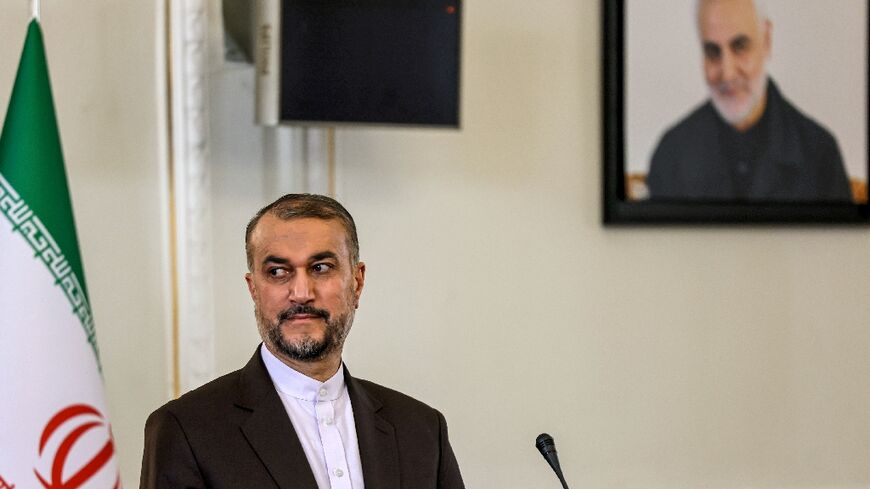Iran's foreign minister visited Japan on Monday for the first time since 2019, in a rare trip to a G7 member country by the Islamic republic's top diplomat.
The purpose of the visit by Hossein Amir-Abdollahian to the current chair of the G7 was not announced, but reports said Japan would press Iran to stop supplying Russia with arms.
Kyiv's military said last month it had destroyed dozens of Iran-built attack drones targeted at Ukraine's Odesa region.
Amir-Abdollahian met Japanese Foreign Minister Yoshimasa Hayashi, with both hailing the opportunity to have face-to-face talks in Tokyo.
"I am grateful for having this opportunity of exchange of opinions" over bilateral, regional and international issues, the Iranian diplomat said.
Ahead of the meeting, Amir-Abdollahian told reporters in Tokyo "we don't pick a side in any war", denying Iran had provided Russia with arms, Jiji Press reported.
He added that Iran "has never provided drones to any country for use in Ukraine", according to the report.
Amir-Abdollahian will also make a courtesy visit to Prime Minister Fumio Kishida, private broadcaster TBS reported.
TBS, citing unnamed government sources, said Japan would raise the issue of arms exports to Russia.
The Japanese foreign ministry said in a statement that Hayashi had "requested Iran to take constructive measures, repeating Japan's position on Russia's invasion into Ukraine".
- Nuclear concerns -
Japan and Iran have traditionally kept friendly ties despite key Tokyo ally Washington's tense relations with Tehran.
Iran used to be a major oil exporter to resource-poor Japan, but volumes have dropped sharply in recent years due to US economic sanctions on the Middle Eastern country.
Amir-Abdollahian's visit to Japan is the first by a top Iranian diplomat since December 2019, and the first under President Ebrahim Raisi.
However, Hayashi and Amir-Abdollahian have held telephone talks in the past, most recently in April this year.
During the April talks, Hayashi expressed Japan's support for the 2015 nuclear accord between Iran and six major powers, and urged Tehran to cooperate with the International Atomic Energy Agency (IAEA), the UN nuclear watchdog.
The 2015 accord -- to which Russia and China were also parties -- was aimed at scaling down Iran's nuclear activities in order to allay fears it was developing atomic weapons.
But the United States pulled out of the deal under former president Donald Trump and efforts to revive it under President Joe Biden have faltered, while Tehran has expanded its nuclear work.
The Japanese foreign ministry said in its statement that Tokyo had "serious concerns about Iran's nuclear-related activities" and called for Iran to take "constructive measures including complete and unconditional cooperation" with the IAEA.






